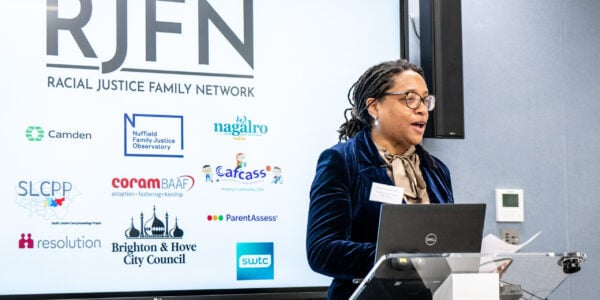Inequalities
What impact do inequalities have on the experiences and outcomes of children and families in the family justice system?
Menu
Our aim is to use data and evidence to identify inequalities relating to ethnicity, geography, income, disability and other characteristics, to understand how they affect people’s experiences of the family court and to encourage the family justice system to take action to address them.
Why we need research into inequalities
Recognising and responding to all inequalities is vital for a fair and effective family justice system.
There is a growing recognition and acceptance that there are deep inequalities related to ethnicity in children’s social care.
A lack of access to good quality data about the ethnicity of children and adults in the family justice system has been, and continues to be, a barrier to understanding how various children and families experience the system. Although significant progress has been made in recent years by Cafcass, we know that the recording of ethnicity data is beset by challenges, and that data linkage is needed to help improve access to reliable ethnicity information. Qualitative research, and listening to those with lived experience, is another vital step in improving our understanding of what is happening within the family justice system.
We know that there is a long way to go and that more needs to be done to recognise and respond to the needs of children and adults through an ethnicity lens.
What we are doing
- Preliminary Nuffield FJO analyses of the Cafcass ethnicity data for England and Wales show disparities between the proportions of different ethnic groups appearing in both public and private law proceedings compared to the general population – echoing previous studies – and variation in diversity across regions.
- Our deeper analysis of the ethnic composition of children in care and supervision proceedings in England examined – for the first time – differences in the demographic characteristics of children of different ethnicities in care proceedings; legal outcomes for those children; how long it takes to get to a final order; where children are living; and whether parents come back to court after the final order is made.
- Our research into the health vulnerabilities of parents in care proceedings in Wales by the Family Justice Data Partnership found that parents had higher use of both routine and emergency healthcare and were more likely to experience poor mental health, substance use and injury-related conditions compared to a comparison group of parents not involved in care proceedings.
- We used published data to follow a child’s journey through the family justice system – before court, through court proceedings, and after court – to show that ethnic disparities exist across the spectrum. In the paper we highlight substantial and important gaps in the published evidence at each stage which we hope will inspire curiosity and reflection, as well as stimulate further research in this area.
- Nuffield FJO has been convening the Anti Racist Family Justice Network, bringing together a wide coalition of groups and individuals with a focus on the promotion of anti racist initiatives across family justice.
Explore our research on inequalities
Type

Infographic
What do we know about children in the family justice system?
Our infographic pulls together what we know, and what we don’t know, about children’s journeys through the family justice system from national data.
